MiGs, Stars & Magic Books: A Brief History of Trespassing in Moscow
An illustrated guide to urban exploration in the Russian capital.

Wednesday 20 January 2016
So there we were, stood at the gates to Doftana Prison: a century-old penitentiary in the foothills of the Carpathian Mountains. If you haven’t read my article about the prison yet, then I suggest you go and check it out before reading this. The building’s story is fascinating – from its notorious inmates such as Nicolae Ceaușescu, through to the secret communication systems that allowed communist prisoners to publish their own regular newspaper from inside these walls.
 Before I could investigate any of that though, the process of actually getting inside the prison proved to be far more difficult than I’d anticipated.
Before I could investigate any of that though, the process of actually getting inside the prison proved to be far more difficult than I’d anticipated.
So there we were. We’d arrived at the gates by taxi; then immediately ducked out of sight. There was a guard hut just beyond the metal bars. Peering round the corner, across the forecourt, I made out a guard in uniform some way beyond – patrolling between us and the prison itself.
Doftana Prison was built in the middle of an open meadow, a high perimeter fence surrounding that in turn. The guard seemed to be patrolling in circles around that open space, that no man’s land inside the compound, so that to cross without being spotted would take impeccable timing. We kept out of sight, even here on the safe side of the perimeter; there was nothing else along this rural road but forests and the occasional small dwelling. For us to be seen, even out here on the road, might well be enough to put the guards on alert.
And so we ducked down behind the fence where it disappeared into bushes, and we followed it around. The idea was that we’d reach some point at the far back end of the compound, watch and wait for the guard to circle out of sight, then make a run for it. It was feasible enough – one guard, two of us, lots of space to work with and no one else for miles.
The only real problem would be climbing the inner wall, the high walls of the prison block itself; walls whose very raison d’être was precisely that they were difficult to climb. We were hid in the bushes, contemplating our next move when a second, equally real problem came and found us.

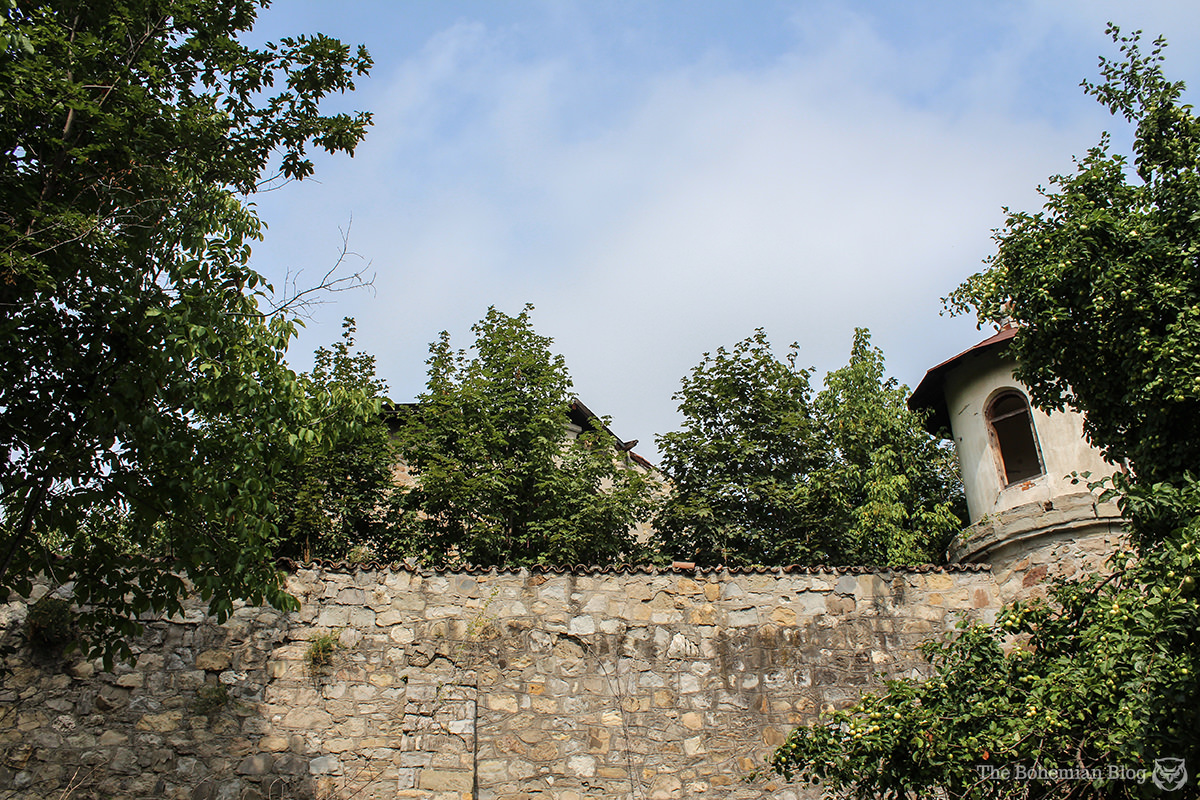 It was a dog; a thin, hungry looking dog that was either a stray, or a ruthlessly underfed guard dog… and hungry guard dogs tend to be the worst of the lot.
It was a dog; a thin, hungry looking dog that was either a stray, or a ruthlessly underfed guard dog… and hungry guard dogs tend to be the worst of the lot.
For a while it just looked at us, from the other side of the fence. Then it started barking, and immediately another dog appeared – running around the corner of the building to come and join the chorus. When a third animal barked, somewhere off and out of sight, we had to accept the inevitable: there was no way we’d be getting in undetected.
The two of us walked back round to the main entrance. There was no point being subtle anymore, no need to hide in bushes, as the guard, wherever he was, would no doubt have realised by now that he had company out here at the prison. So we turned to the last resort: a dialogue with security.
I always try to avoid security guards if I can. Not purely for the thrills; as exciting as it can be to sneak into places like this, I am all in favour of doing it officially as well. It’s just that at most of the really interesting places, they’ll simply tell you ‘No.’ Plus, if you do get caught sneaking over a security barrier later, you’ll have far more excuses to work with if you haven’t already been asked to leave by security.
The security guard at Doftana Prison turned out to be a woman. She was already waiting for us by the time we got back round to the front gate – a half smile on her face, and dogs panting around her feet.
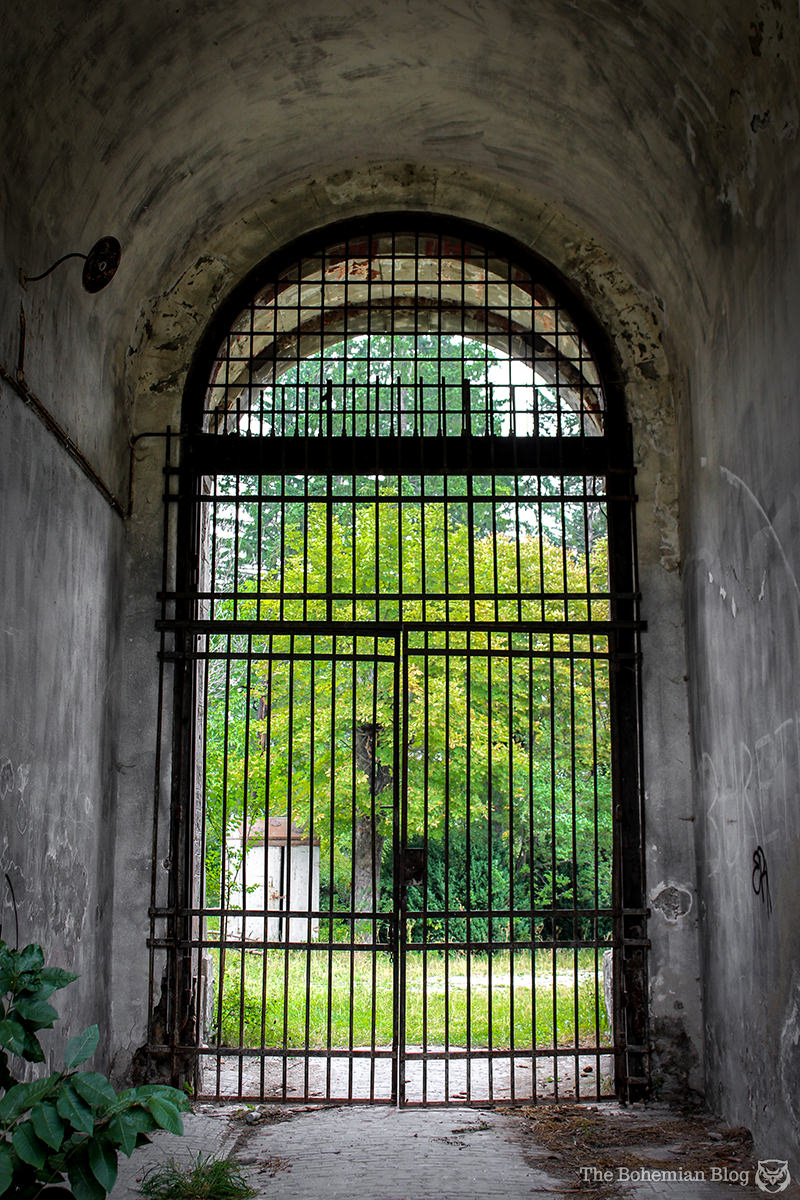 “Can I help you two?” she asked… or at least, I imagine it was something much like that. The conversation was in Romanian, but her posture, her tone, suggested that she knew exactly what we’d come for; and she knew that her team had already won the game.
“Can I help you two?” she asked… or at least, I imagine it was something much like that. The conversation was in Romanian, but her posture, her tone, suggested that she knew exactly what we’d come for; and she knew that her team had already won the game.
Petre cut straight to the point (it’s a quality I rather love about Romanians). He asked her if we could go inside the prison, but she just laughed and shook her head.
“Tell her we’ll pay,” I hissed, and he translated.
Again, No.
What she said, Petre later explained to me, was that the place was just too famous. Too important, too high profile. If she took a bribe to let in photographers and the images ended up online… well, it just wasn’t something she planned to risk her job over.
“The only way you’re getting in here,” she added with a chuckle, “is with a signed letter from the mayor.”
She was joking, of course. Her comment was intended to kill the conversation; hyperbolic to the point of impossibility. She might just as well have told us to fly over the walls, or turn ourselves into dogs.
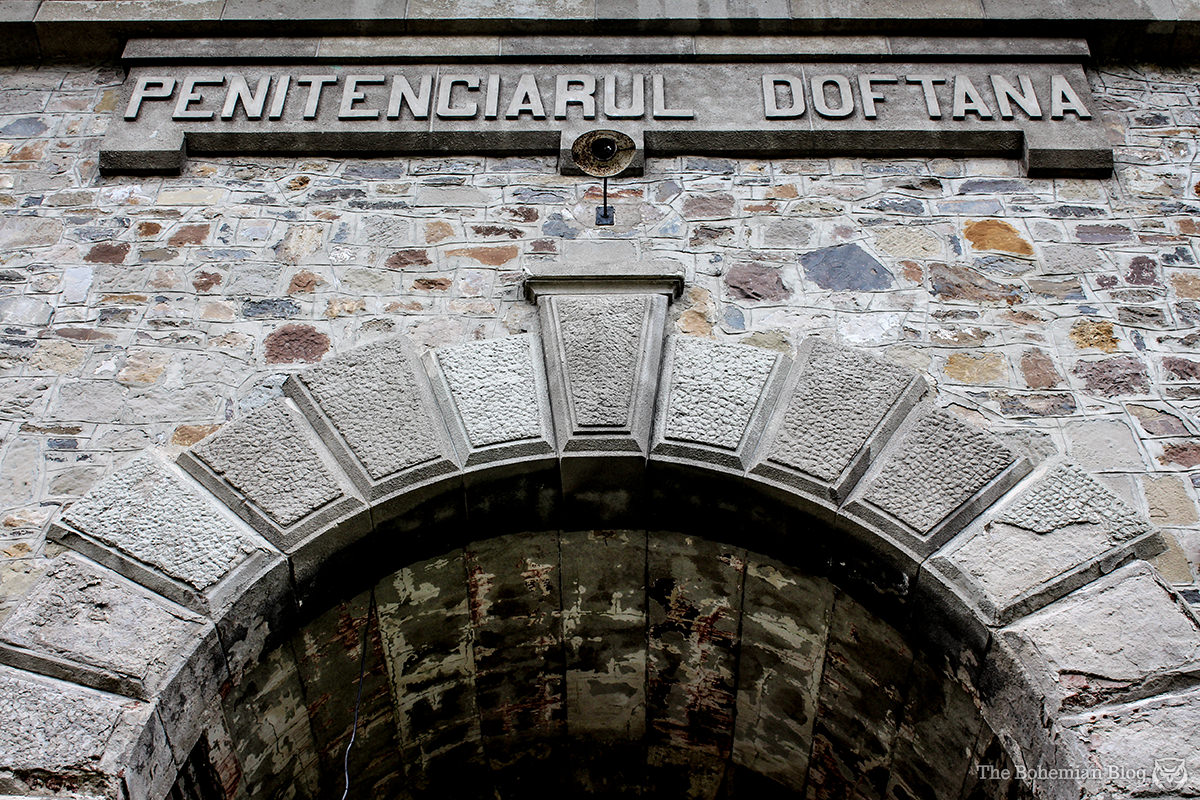
But we had travelled a very long way for this – and I really, really wanted to explore that abandoned prison. I looked at Petre for a moment in silence.
“No,” he said. “Oh, no.”
“Translate this,” I asked him: “Where can we find the mayor?”
Back in the taxi, Petre had picked up a business card. Now he called the driver up again, and asked him to take us from the prison gates to the town hall.
 This not being a large town – barely more than a village – it turned out the taxi driver knew the mayor personally; and so we explained our predicament, our honest intentions, and he offered to put in a good word on our behalf. The day was getting stranger by the minute.
This not being a large town – barely more than a village – it turned out the taxi driver knew the mayor personally; and so we explained our predicament, our honest intentions, and he offered to put in a good word on our behalf. The day was getting stranger by the minute.
The mayor kept office in a small, low building in the town centre: around a ten-minute drive from the prison gates. Our taxi driver led the way inside, holding the door open for us. The interior of the town hall was all wood paneling around a long counter, an art deco hat stand and light fittings that looked like they hadn’t been changed since the 1960s. The receptionist gave us an icy welcome.
“You can’t just turn up and speak to the mayor. He’s a very busy man,” she explained. “Do you even have an appointment?”
We didn’t, of course, but we were perfectly happy to make one. Petre asked when the next available slot would be. In five minutes, she replied, and so we sat on a padded faux-leather bench in the reception area and waited.
***
The air in the office was stale. Framed pictures hung on the walls, in between windows that were closed despite the summer heat. The Mayor of Doftana sat behind a paper-covered desk, brushing documents aside as if to clear a physical space for this new conversation. On the wood-panelled wall behind him hung a sagging Romanian flag.
Our friend, the taxi driver, stood to one side as Petre and myself were ushered into chairs across from the mayor. I could see that Petre was nervous – he was younger than me, and the prospect of translating this conversation had clearly put him on edge. Well, we were both nervous, to be fair; but at least I had a language barrier to hide behind.

 The mayor was watching us with curiosity; he was well dressed in an old suit, balding and perhaps in his early 60s. He looked up at me and spoke something. “So you want to look inside our prison,” Petre translated. I looked from Petre to the mayor, and back to Petre; behind him our driver was nodding encouragement, like a parent on the sidelines of a school sports field.
The mayor was watching us with curiosity; he was well dressed in an old suit, balding and perhaps in his early 60s. He looked up at me and spoke something. “So you want to look inside our prison,” Petre translated. I looked from Petre to the mayor, and back to Petre; behind him our driver was nodding encouragement, like a parent on the sidelines of a school sports field.
“Yes,” I said.
“Why?” he asked.
I took a deep breath – before explaining what I knew of the history of the prison. I talked about its construction, about its role as a political detention centre under King Ferdinand; I mentioned the Ceaușescu connection and the prison’s second life as a museum during the communist years.
“But that’s just what I’ve read in books,” I finished. “And now I would very much like to see this historic building for myself.”
Petre translated my words to Romanian, chunk for chunk, and when we both finished the mayor looked impressed.
“So you enjoy Romanian history then?” he asked, and I began to praise the nation’s glorious heritage, its steadfast strength of character, until he cut me off.
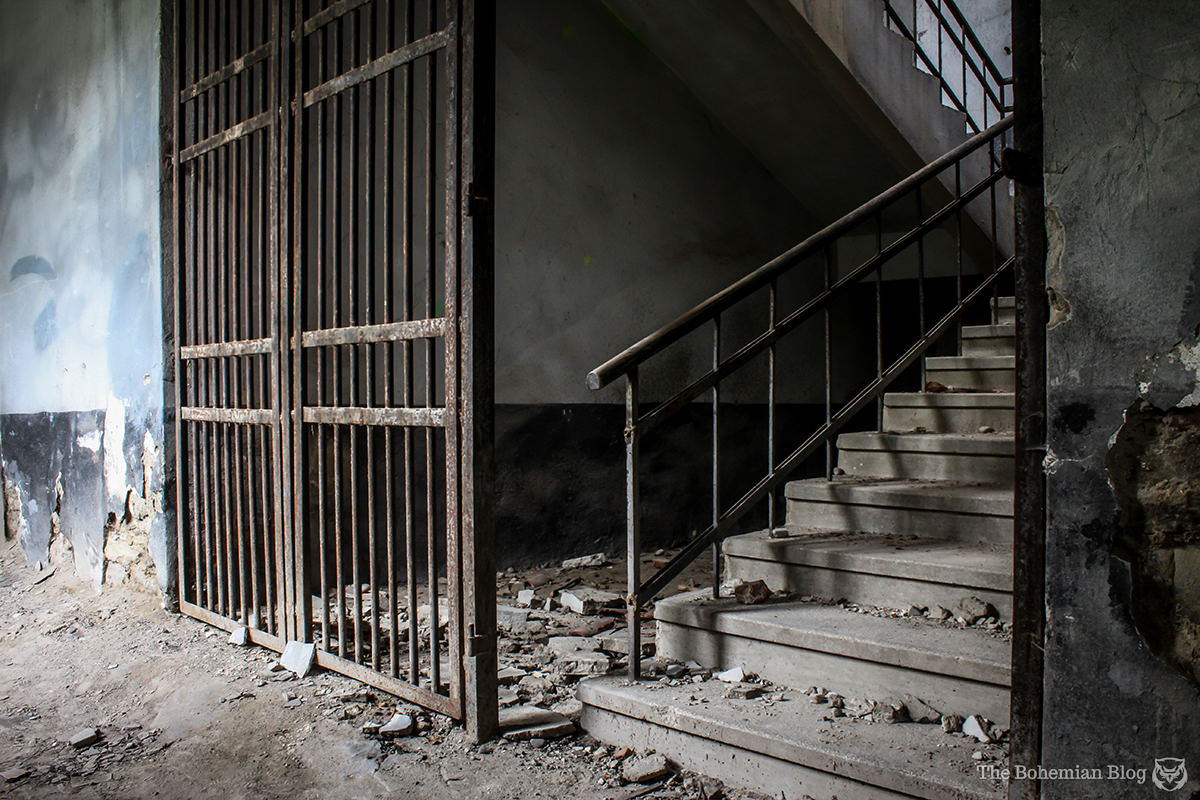
“Da, da, da,” he said, with a friendly wave of his hand; As nice as it is to hear this, let’s not waste each other’s time.
“Are you a journalist?” he asked, and I said No.
“A keen amateur historian,” I replied.
“Well,” he said, “it’s dangerous. I can’t possibly let you inside.”
Silence. No one moved. There was a finality about the mayor’s words which his body language did not mirror; and I realised that it was my turn to make a play.
Initiating a bribe is always a delicate art; and not everyone will be receptive to it. Some people take offence. In other situations, it can get you arrested. I had bribed security guards before – and even some here, in Romania – but offering under-counter money to an elected government official was a game I’d never played.

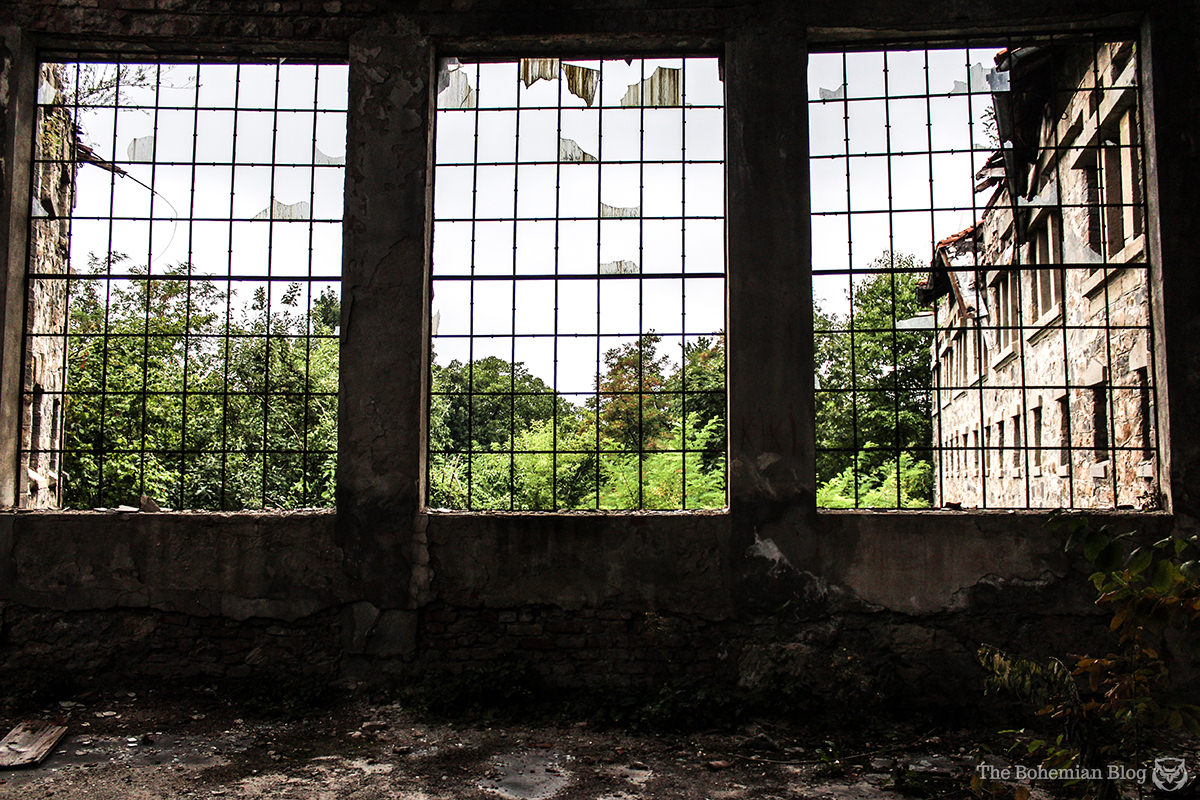 I began carefully.
I began carefully.
“I understand the prison museum closed down due to lack of funds” – a pause, while Petre translated – “and I imagine it must be quite a weight for your town to bear. The repairs and maintenance of such a large, important, historical monument.”
The mayor was smiling; he knew where this went.
“I might be interested,” I said, picking my words with care, “to offer a private donation towards the upkeep of this fascinating site… and if I do, I wonder if you’d permit a private visit by one of the building’s patrons?”
I had no idea how all that sounded once it had arrived at the mayor’s ears in Romanian; but he seemed to enjoy it.
“Fine,” he said, sitting up straight in his chair as if suddenly he meant to do business. “Three hundred euros.”
“Three hundred euros,” I repeated, rather taken aback, once Petre had translated.
“Three hundred euros,” the mayor said again, “for one hour in the grounds. But no entry to the building.”
“Oh, no,” I said. “That’s too much. And we want total access.”

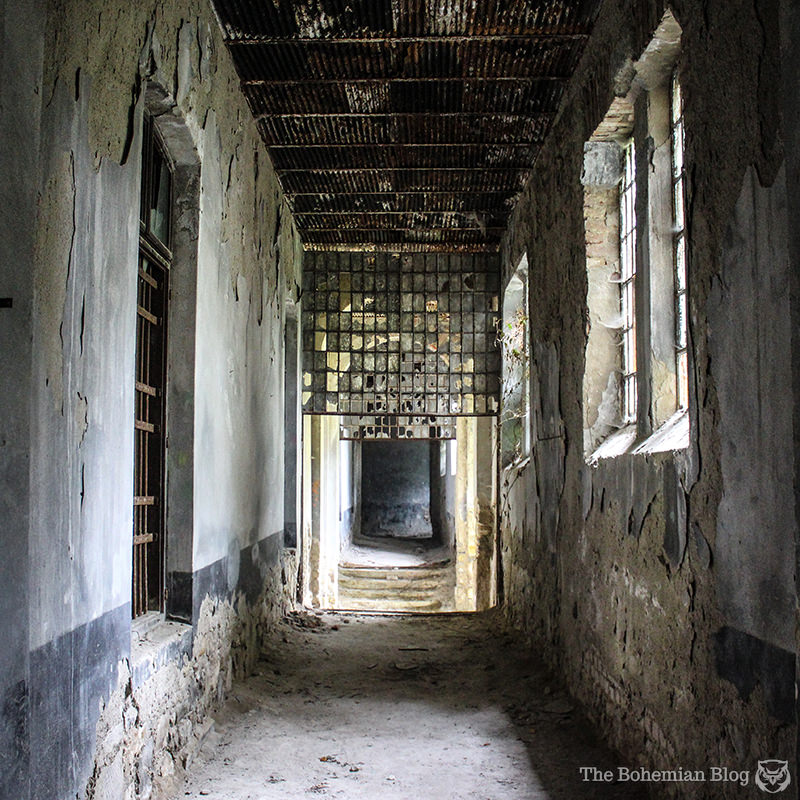 “You’re British,” the mayor countered, “this amount is nothing for you.” He started talking about the danger again, about collapsing roofs, holes in floors, broken glass.
“You’re British,” the mayor countered, “this amount is nothing for you.” He started talking about the danger again, about collapsing roofs, holes in floors, broken glass.
“I’ll sign a disclaimer,” I suggested. “I’ll sign anything you like. You will have no responsibility whatsoever for anything that happens to me inside there… and I’m not paying three hundred euros.”
And so the haggling began.
We talked for what felt like hours, but was probably closer to forty minutes. It seemed the mayor had simply been trying his luck with that first quote; because he dropped the price fast when I insisted I wouldn’t pay. In the end I got it down to 200 Romanian lei – that’s about £35 – for unlimited time and access to all areas of the prison complex.
The mayor called down to reception and dictated a disclaimer note over the phone. The printed note was produced for me to sign; another letter appeared, a permission slip which he signed himself, folded neatly, and passed across the desk to me.
“This money will be useful,” the mayor was saying as I took the notes from my wallet. “We have a community fund here, to help citizens in the town who cannot pay their utility bills. There is a local family who are struggling right now, and this money will directly cover their costs.”
It was a lovely story, and I chose to believe it. I shook the mayor’s hand; the mayor shook Petre’s hand; and, business concluded, he walked us to the door.
***
We took the taxi back out to the prison. The driver, who’d been with us all afternoon, felt like one of the gang by now.
 The car pulled up at the gates with a satisfying crunch of gravel – and the guard sauntered over with her dogs. Her smile had disappeared. She was clearly tired of this nonsense now; she’d said her piece, and No meant No.
The car pulled up at the gates with a satisfying crunch of gravel – and the guard sauntered over with her dogs. Her smile had disappeared. She was clearly tired of this nonsense now; she’d said her piece, and No meant No.
She was just about to open her mouth when I pulled out the note: a signed letter from the mayor, as per her instructions.
The guard’s disbelief was pure theatre to behold. Her eyes rolled as she scanned the text; she held the signature up to the sun. It was real. She shook her head in bafflement and duly, begrudgingly, she opened the padlock and set us loose inside Doftana Prison.





An illustrated guide to urban exploration in the Russian capital.

Poltergeists, ritual murder & a live-in succubus – the 1000-year-old pub with a ghostly reputation

A month-long monument hunt, and what I learned along the way.
COMMENT